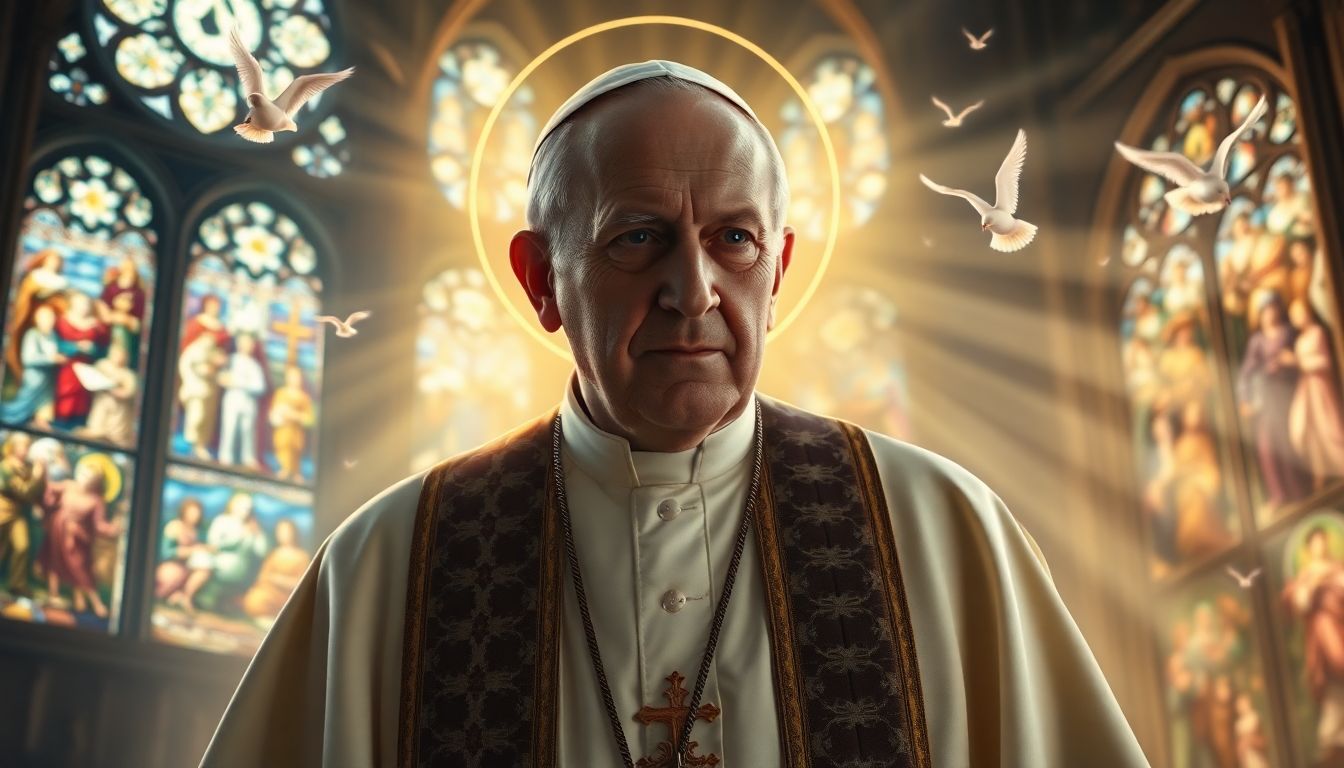
Pope Francis is one of the most influential religious leaders in the world today. As head of the Catholic Church, he guides millions across the globe. His words and actions shape not just faith but also politics and social issues. Understanding his journey from Buenos Aires to the Vatican helps us see how he became a symbol of humility and change.
What happens when such a leader faces health problems or passes away? The impact would be huge — for the Church and the world. This article covers his early years, his rise to power, his key achievements, health concerns, and what his death could mean. Let’s explore his life story, leadership, and legacy in detail.
Early Life and Path to the Papacy
Background and Childhood
Jorge Mario Bergoglio was born in 1936 in Buenos Aires, Argentina. His family was humble but close-knit. His father was a railway worker, and his mother was a homemaker. Growing up, he was deeply influenced by his faith and community. These early years left a mark on his values of service and compassion.
By the time he was a teenager, he knew he wanted to serve others. His childhood was filled with stories of hope and faith that pushed him toward a religious path.
Religious Calling and Ordination
In his 20s, he joined the Jesuits, a Catholic order known for education and service. This decision shaped his spiritual outlook. After years of study and prayer, he was ordained as a priest in 1969. His work mostly focused on helping the poor and speaking out against injustice.
The role of a Jesuit scholar helped him develop strong leadership skills. Over time, he became known for his humility and dedication. These traits framed his approach to church leadership later in life.
Rise Through Church Hierarchy
Bergoglio’s reputation grew as he became Archbishop of Buenos Aires. He was known for speaking frankly and helping the needy. In 2001, Pope John Paul II made him a cardinal. This marked his official entry into global church leadership.
During this rise, he navigated controversies and earned both praise and criticism. Yet, he remained committed to his mission of serving the vulnerable. His journey eventually led him to be seen as a candidate for the papacy, a role few expected him to take.
Papacy: Life, Leadership, and Legacy
Election as Pope and Initial Reforms
In 2013, following Pope Benedict XVI’s resignation, Bergoglio was elected pope. He chose the name Francis, symbolising humility and simplicity. It was a historic moment because he was the first Jesuit pope and the first from Latin America.
His early days were marked by promises to reform the church. He focused on transparency, fighting corruption, and living modestly. These steps helped many see a new, approachable face of the papacy.
Key Achievements and Challenges
Pope Francis championed social justice, often speaking out against inequality and poverty. He pushed for climate action and promoted interfaith dialogue between religions. His efforts extended to global crises, such as the COVID-19 pandemic, where he urged compassion and care.
Inside the church, he faced tough debates over doctrine and tradition. Some critics argued he was too progressive; others believed he brought needed change. Still, he maintained focus on compassion and unity, helping rebuild trust in the church.
Impact on the Catholic Church and Global Community
His leadership transformed how the church connects with everyday people. He redefined outreach by embracing the poor and marginalised. His influence stretched into politics, inspiring leaders to consider social issues.
Scholars and world leaders respect him as a leader who combines faith with action. His style of leadership—open, humble, and kind—set new standards for religious guidance. His legacy will influence church policies and global conversations for years to come.
Health, Death, and the Future of the Papacy
Health and Medical Developments
Pope Francis has faced health troubles, including respiratory issues and surgeries. Publicly, he remains active, but concerns about his age and health persist. Reports indicate he undergoes regular medical checks to oversee his wellbeing.
His health affects his ability to serve fully and participate in major events. Still, he continues to lead with dedication, even amid medical challenges.
The Process Surrounding His Death
When the pope passes, a traditional process begins. Cardinals gather in a conclave to elect his successor. This transition is carefully planned, rooted in centuries of church protocol.
Experts and Vatican officials work together to ensure a smooth handover. The new pope’s leadership will shape the church’s future paths, especially after a leader like Francis, known for his reforms and humility.
Legacy and Impact of His Death
His death would shake the Catholic world. It’s likely to spark a period of mourning and reflection about his contributions. His emphasis on compassion, social justice, and humility will leave a lasting mark.
He inspired many to see faith as active service rather than rituals. Long-term, his legacy could help shift the church toward a more inclusive and caring approach.
Conclusion
Pope Francis’s life is a story of humility, service, and change. From his childhood in Buenos Aires to leading the Catholic Church, he inspired millions worldwide. His health challenges remind us that even the strongest leaders face physical limits. When he eventually passes, his influence will remain. His leadership set new standards for compassion, social justice, and faith.
As we reflect on his journey, it becomes clear that his legacy shapes future generations of church leaders and global advocates for kindness. Staying engaged with his teachings helps build a world guided by hope and understanding. His life reminds us that true strength lies in humility and love.



0 Comments